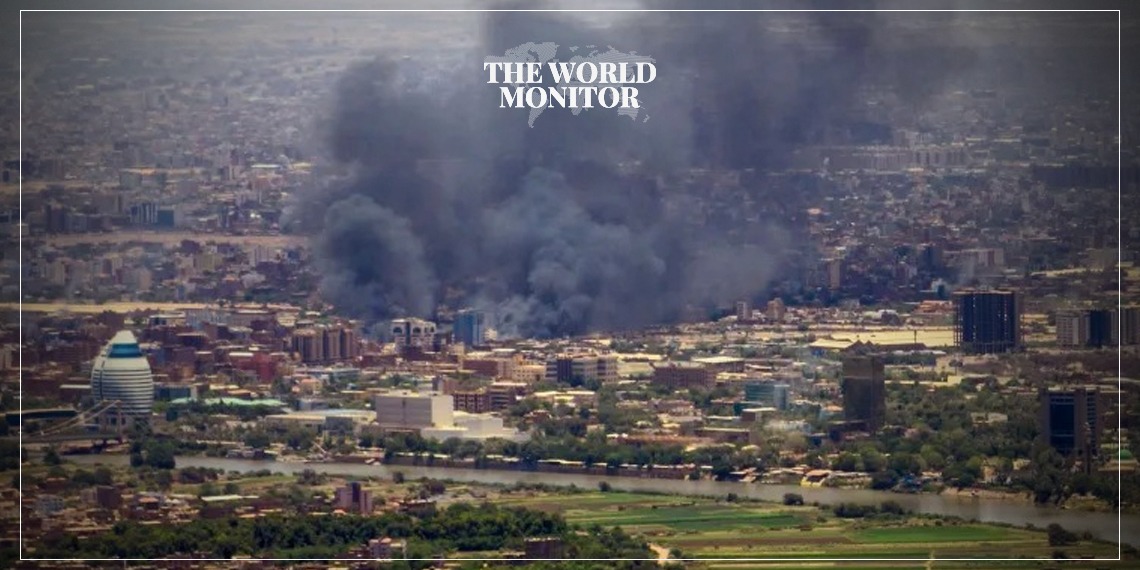Local sources reported to Al Jazeera that fierce clashes involving heavy and light weaponry occurred on Tuesday between the Sudanese Army and the Rapid Support Forces (RSF) around the neighborhoods near the army’s Armored Corps in southern Khartoum.
These clashes ensued hours after the army confirmed that its forces had cleared the areas around the Armored Corps and expelled elements of the Rapid Support Forces from civilian homes in the region.
Local sources also reported to Al Jazeera that smoke was seen rising from the largest thermal power station in North Khartoum.
The army and the RSF have exchanged accusations regarding the responsibility for a fire at the station that lasted for days.
In the White Nile state, local sources confirmed that the Rapid Support Forces attacked the village of Hilba in the southern part of the country, stormed the city’s market, and shut down commercial shops.
Last night, Al Jazeera’s correspondent reported that military aircraft belonging to the army were seen flying over North Khartoum state, while the RSF fired anti-aircraft weapons at the planes.
On the humanitarian front, the World Food Programme stated that heavy rains and the flow of water along the Sudanese-Chadian border have hindered the delivery of humanitarian aid, leaving many areas inaccessible and in desperate need of assistance.
Yesterday, a Turkish aid ship arrived in Sudan carrying 2,408 tons of humanitarian aid, which was delivered to the Sudanese government.
Amid the fighting that has spread to 12 out of 18 states in the country, there have been increasing international and UN calls to avert a humanitarian disaster in Sudan that could push millions into famine and death due to food shortages.
Since mid-April 2023, the war—led by Sudanese Army commander Abdel Fattah al-Burhan and RSF leader Mohammed Hamdan Dagalo (Hemedti)—has resulted in approximately 15,000 deaths and about 10 million displaced people and refugees, according to the United Nations.






